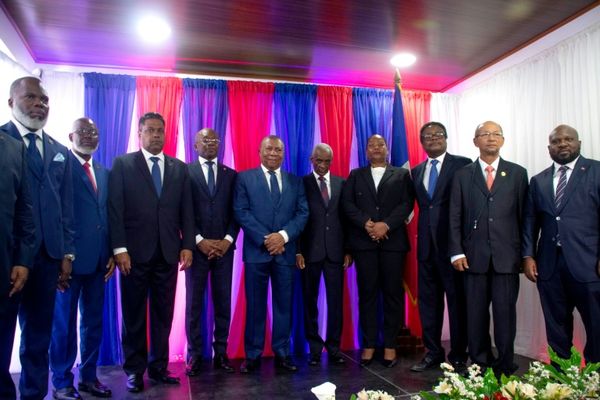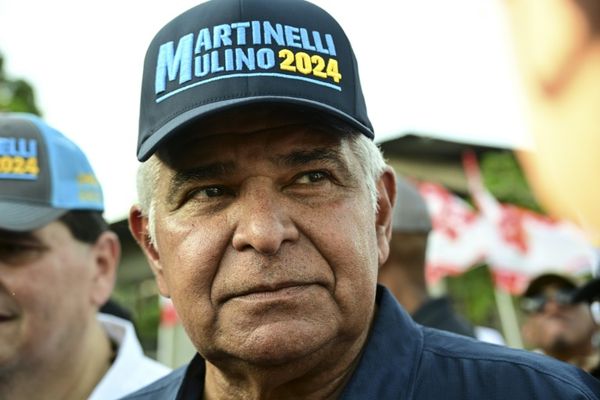
The 2022 election was momentous, with all seven independents bankrolled by Simon Holmes à Court’s Climate 200 elected, forming the strongest crossbench in the Australian Parliament’s history.
But their trials and tribulations rate scarcely a mention in Holmes à Court’s new book, The Big Teal. Instead he talks of his upbringing, including having been bullied at Geelong Grammar for being — as one bully told him — “self-righteous”, fundraising, and the pettiness of politics at the hands of former treasurer Josh Frydenberg and the media abuse Holmes à Court received.
But after being introduced in the first pages, the Climate 200-funded independents don’t come up again until the final chapters.
Political games
Frydenberg and Holmes à Court had a strange relationship. Armed with a “bottle of Vasse Felix from the Margaret River winery that’s been in my family since the late 1980s”, Holmes à Court would visit Frydenberg semi-frequently and enjoy “sparring” over climate issues.
But Frydenberg was thin-skinned. After Holmes à Court wrote an op-ed criticising the treasurer for trying to persuade AGL not to close the Liddell coalmine, Holmes à Court’s Kooyong 200 Club committee membership was cancelled, with two years of fees and a donation refunded. Frydenberg also kicked him out of a “meet the candidate” pub event in May 2019 and called a donor after a Climate 200 donor was unwittingly published by Holmes à Court.
Holmes à Court is clear in his criticism of political games, describing how major parties are paid out by the AEC for primary votes — using candidates they provide limited funding to as money makers simply by their party affiliation.
He also criticises how funding can get donors a “direct line” to ministers when politicians, journalists and other public figures should be accessible to the public (although he doesn’t discuss what access his donations gave him).
Son of a billionaire
Holmes à Court’s life of privilege is repeatedly discussed in the media, and he goes into depth about his upbringing. He’s one of four children born to business tycoon Robert — who emigrated from Zimbabwe — and Janet in Western Australia.
Robert Holmes à Court is described as a man who told workers to “sleep faster” when they complained about being overworked. After his death, his widow took over the business, dropping underperforming assets and acquiring companies, including the construction business that built Parliament House.
She’s introduced as a woman who “freed my father from the thousands of little tasks that normal folk do. She freed him to think and do,” describing her domestic duties but skimming over her role working in her husband’s legal practice. She was also on the boards of the Cancer Council WA, Diabetes Research Foundation, Save the Children Fund and “a dozen other charities”.
Holmes à Court later said that the media fixated on the fact he was the son of Australia’s first billionaire, but “my mother, whose impressive career spans six decades, almost never cracks a mention”.
Birth of the teals
Holmes à Court realised the power of the crossbench while funding ads for Kerryn Phelps and the “Kids off Nauru” campaign. Phelps’ medivac legislation was passed in February 2019 (though repealed shortly after).
He launched Climate 200 six weeks before the 2019 election, raising less than half a million dollars but noting that he’d started too late and spread his donations around too much.
But 2022 was different: Climate 200 started early. Mid-2021 polling found 28% of voters in Mackellar, Wentworth and North Sydney wanted an independent “like Zali Steggall”. Polling in Goldstein, Kooyong, Flinders and Higgins showed even more promising results when asked about an independent “like Helen Haines”.
Holmes à Court described discussions with Cathy McGowan and her sister Ruth about getting women into politics, finding their hesitation was down to a “lack of confidence”. Climate 200 didn’t pick candidates, but helped fund those who had set up a successful campaign and had the support of their community.
Fundraising was successful, even if candidates were slow to emerge. Climate 200 raised more than $13 million, but Holmes à Court doesn’t canvass how he chose to fund independents or specifically where donations went.
He goes into depth about the negative media attention he received, with some outlets attempting to paint him and independents as anti-Semites. He quips that “Sky after dark” was nothing compared with the bullying and physical assault experienced at “Geelong Grammar after dark”.
This is the shortfall of the book: he fails to explore just how the historic election of those independents was achieved — and who the women at the heart of it are.







